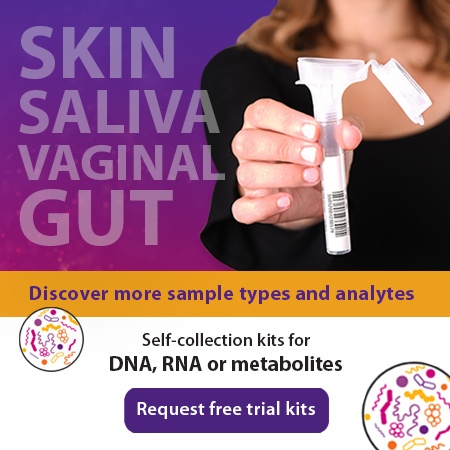2021-08-20
Can the oral microbiome help law enforcement link suspects to crime scenes or evidence? In this summary of a new episode of Molecules, Microbes and Multiomics, Heloise Breton PhD , a product manager at DNA Genotek with a background in forensic science, and Megan Anderson, a recent graduate from Rock Canyon High School, chatted with us about Megan’s project on the oral microbiome in collaboration with the team of scientists at Diversigen. Listen here for the full episode.
For her senior high school research project Megan set out to address if oral microbiome profiling was a reliable forensics tool. Designing a study with the team of scientists at Diversigen, the group collaborated to develop sample collection, sequencing, and analysis methods that would best support the study objective. With the potential for each microbiome profile to be unique, Megan collected oral microbiome samples (gum and plaque) from participants using DNA Genotek’s OMNIgene•ORAL’s OMR-110 device to answer if the oral microbiome could be accurately characterized to link individuals to their “crime scene” samples.
The microbiome has previously been used at archeological sites to identify microbial signatures on samples from uncovered sites. Identifying certain microbes, researchers could establish time points for the sample or even determine the material. Comparing paleomicrobiology and forensic microbiology techniques, Heloise Breton , discusses her own PhD work and how previous research techniques could be applied to utilize the microbiome in new innovative ways.
A major limiting factor in using the oral microbiome in the field of forensics is the high variation between profiles within 24 or 48 hours. With new microbes entering the oral cavity, along with sources of food, fluctuations in the oral microbiome from one individual could create two completely different profiles. Reflecting on these results Megan concluded, “the oral microbiome cannot be used as an identifier in forensic sciences.” The data collected unfortunately could not be reliably parried between samples.
Leveraging past research such as Megan’s, researchers may be able to better evaluate uses of the microbiome in non-clinical settings. While these results did not support the use of the oral microbiome as a forensics tool, with the development of new collection devices, sequencing technologies, and analytics, the characterization of microbiomes may potentially lead to microbiome based forensic tools in the not-too-distant future.
Interested in learning more about the oral microbiome and DNA Genotek’s OMNIgene Oral collection devices? Contact us at info@dnagenotek.com


